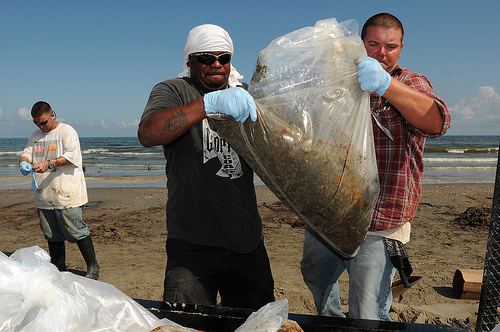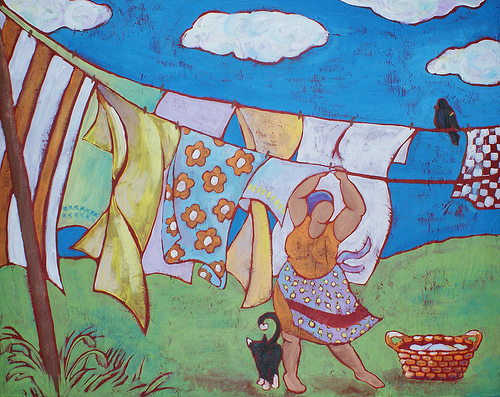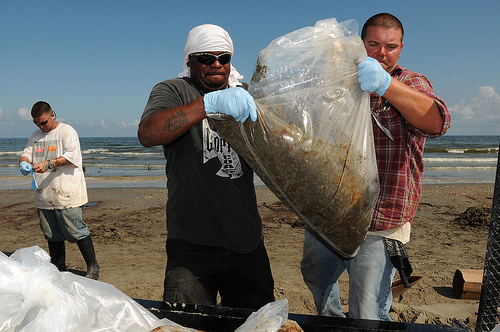 Where is this gunk going?Photo courtesy Deepwater Horizon Response via FlickrWhen oil was steadily gushing out of BP’s broken oil pipeline into the Gulf of Mexico, we were all desperate to stop the flow and get the oil that had already spilled safely out of the water. Sadly, we paid too little attention to where that oil would go once clean-up workers removed it from the Gulf waters. Now we know: far too much of it is being dumped in communities of color.
Where is this gunk going?Photo courtesy Deepwater Horizon Response via FlickrWhen oil was steadily gushing out of BP’s broken oil pipeline into the Gulf of Mexico, we were all desperate to stop the flow and get the oil that had already spilled safely out of the water. Sadly, we paid too little attention to where that oil would go once clean-up workers removed it from the Gulf waters. Now we know: far too much of it is being dumped in communities of color.
Robert D. Bullard, director of the Environmental Justice Resource Center at Clark Atlanta University, wrote last week that 61 percent the waste from the BP clean-up (more than 24,000 tons) has been dumped at landfills in communities of color — despite the fact that people of color make up only 26 percent of the population in the coastal counties in Alabama, Florida, Mississippi, and Louisiana. The landfill that has received the most waste from the spill sits in a Florida community where three-quarters of the residents are people of color.
This is not a new problem. For decades, communities of color have borne an unfair share of the burdens and risks of waste disposal in the U.S. A disproportionate amount of toxic waste has found its final resting place near communities of color, which have the high cancer rates, asthma rates, and other environmental health problems that follow. The problem has been particularly acute in the Gulf region; a section of Louisiana has become known as “Cancer Alley.”
Still, the racial disparity in toxic dumping continues, and federal regulators have not done enough to stop it.
The oil spill in the Gulf of Mexico should serve as a wake-up call to the entire country. We have no time to waste in leaving dirty energy behind and embracing a clean-energy future for our country. But this debacle in the dumping of waste from the spill is another wake-up call: that transition, as well as all other aspects of the recovery from the environmental and economic mishaps of the pollution-based economy, must be fair and equitable.
Shifting environmental burdens to the most vulnerable among us is a sad inheritance left us by the last century. We must build the next century in the image of tomorrow’s triumphs, not yesterday’s failures.



